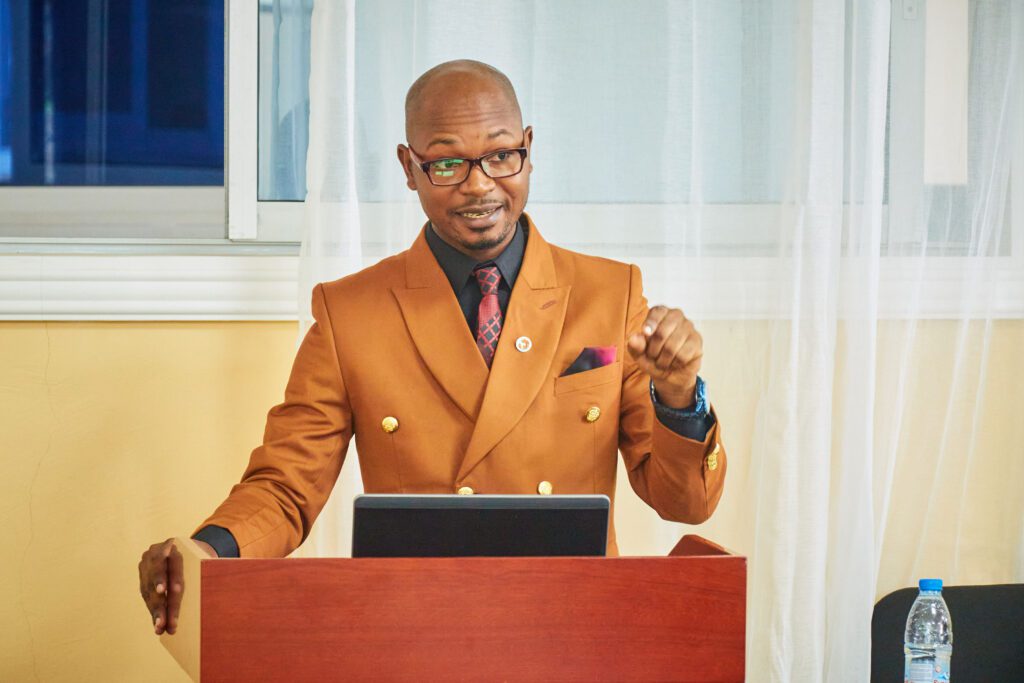In a nation where many PhD graduates plead for government jobs, Dr. Meh Basil Kum stands out as a beacon of self-driven change and innovation. On Thursday, April 10, 2025, at precisely 11:00 a.m., the auditorium of the University of Buea’s Center for Drug Discovery bore witness to a landmark academic milestone—the public defense of a groundbreaking doctoral thesis on a subject often overlooked in African healthcare systems: the health of healthcare workers themselves.
Titled “Work-related musculoskeletal and cardiovascular disorders among healthcare professionals in five referral hospitals in the city of Douala, Cameroon,” the research is the culmination of seven rigorous years of study by Dr. Meh, whose PhD in Physiology now crowns an already distinguished academic and professional career.
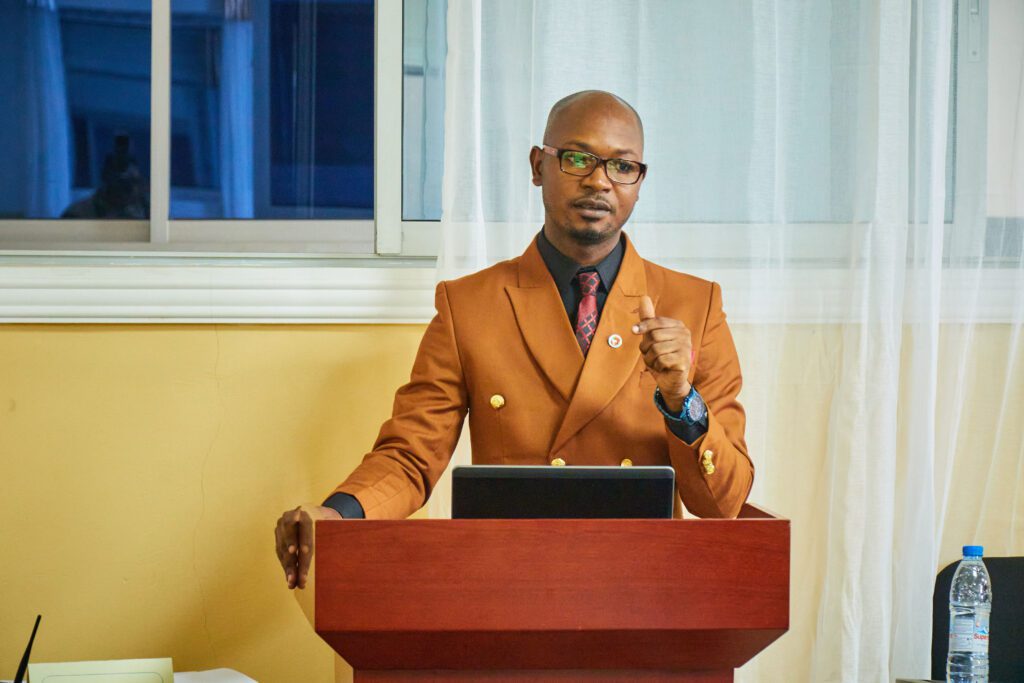
What makes Dr. Meh’s achievement particularly noteworthy, however, is not merely the academic honor, but the social and institutional impact his work promises for Cameroon and beyond.
Dr. Meh’s doctoral research, conducted under the Department of Animal Biology and Conservation, is the first of its kind in Cameroon to scientifically evaluate the link between occupational health and physiological markers among healthcare workers. The study, supervised by Associate Professor Orelien S. M. Bopda from the University of Buea and co-supervised by Professor Samuel H. Mondengue from the University of Douala, brought together a multidisciplinary panel of professors including Professor Irene Ule Ngole Sembele, Chairperson from the University of Buea; Professor Ndagmo Adam B., External Reviewer from the University of Buea; Professor Judith Achang Kimbi, Internal Reviewer from the University of Buea; Associate Professor Paul Aimé Noubissi, member from the University of Buea.
The Research That Shook Douala’s Healthcare Sector
Douala, Cameroon’s bustling economic capital, became the epicenter of a health revolution when Dr. Meh chose it as the field site for his research. Through meticulous selection of referral hospitals across the city’s five subdivisions—including Bonassama District Hospital, Laquintinie Hospital, and the General Hospital—he created a robust and representative sample of healthcare professionals.
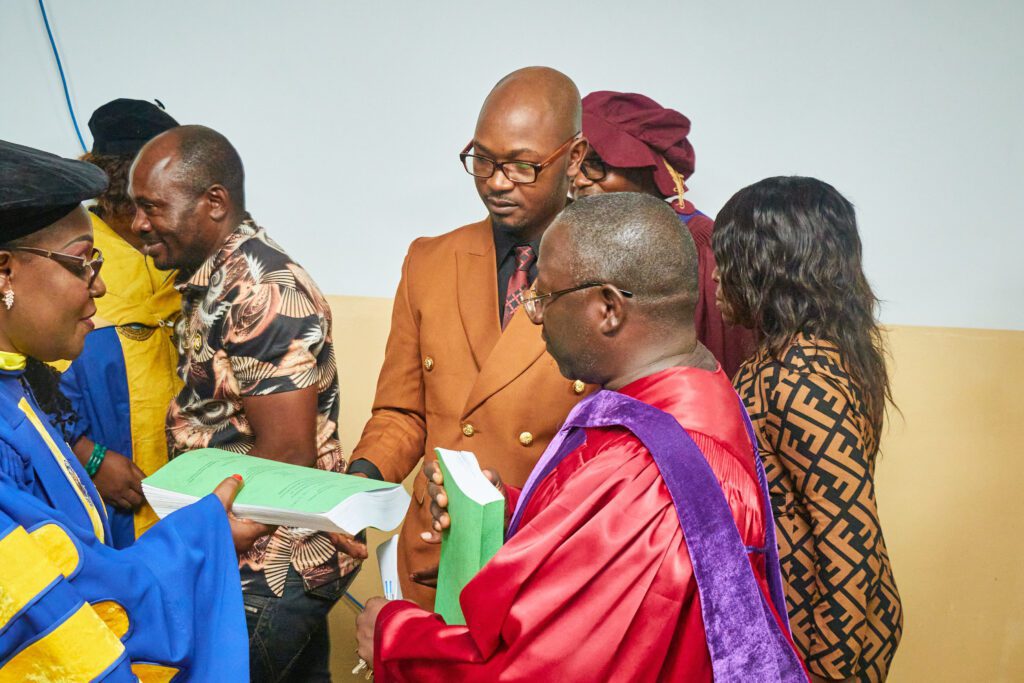
With a comprehensive questionnaire and laboratory analysis, Dr. Meh studied 561 participants, collecting both survey responses and blood samples (from 151 willing volunteers) to analyze stress biomarkers like CK-MB and Troponin I, which indicate musculoskeletal or cardiovascular strain.
His findings were alarming: 83.4% of healthcare workers suffered from work-related musculoskeletal disorders, while 6.4% were affected by cardiovascular issues. The most common condition reported was lower back pain, particularly among lab technicians (88.8%) and nurses, professions often marked by awkward working positions and repetitive physical tasks.
“In our study, we found strong physiological links between musculoskeletal pain and cardiovascular stress,” Dr. Meh said during an interview. “Chronic pain triggers hormones like cortisol and adrenaline, which increase blood pressure—one of the most serious risk factors for cardiovascular disease.”
A Researcher Against All Odds
This was no cushy lab-based PhD. Dr. Meh’s journey through the Cameroonian healthcare research ecosystem was fraught with challenges. “It took almost a month just to get authorization from the Regional Delegate of Public Health in Douala,” he recalled. “For the regional hospitals, we had to go door-to-door to the directors.”
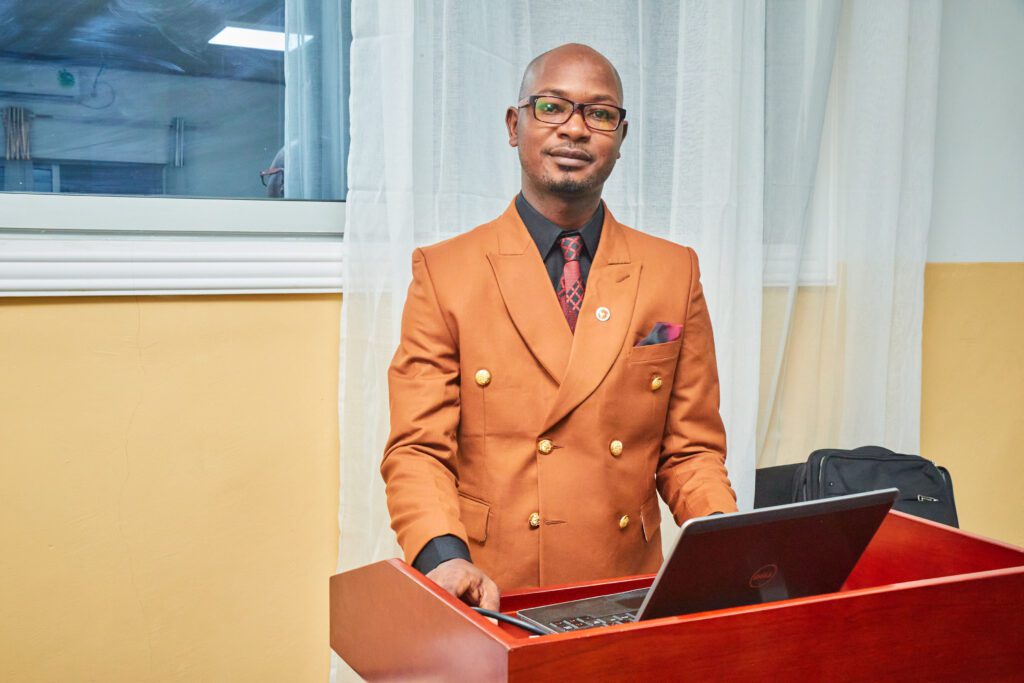
Even after obtaining administrative access, the task of collecting sensitive health data from healthcare workers proved daunting. His 8-to-9-page questionnaire often sat on desks for days before being completed. Blood samples were even harder to collect, as suspicion and fear ran high.
“Some accused us of being ritualists or vampires,” he said, chuckling. “We had to repeatedly explain that we were only testing for biomarkers related to musculoskeletal and heart injuries.”
Despite all odds, he succeeded—thanks in part to his passion and firsthand understanding of the healthcare system, having worked at facilities like Buea Regional Hospital, the Solidarity Hospital of Buea, and Douala Military Hospital.
He self-funded the entire project, spending over 15 million FCFA without any government assistance—a proof to his commitment and belief in the necessity of his work.
A Job Creator, Not a Job Seeker
In a stark contrast to the often-heard lament of unemployed PhD holders, Dr. Meh is already transforming Cameroon’s health education landscape. He is the Founder and Director of the STEM Higher Institute of Biomedical Sciences D’la, an institution training a new generation of health professionals.
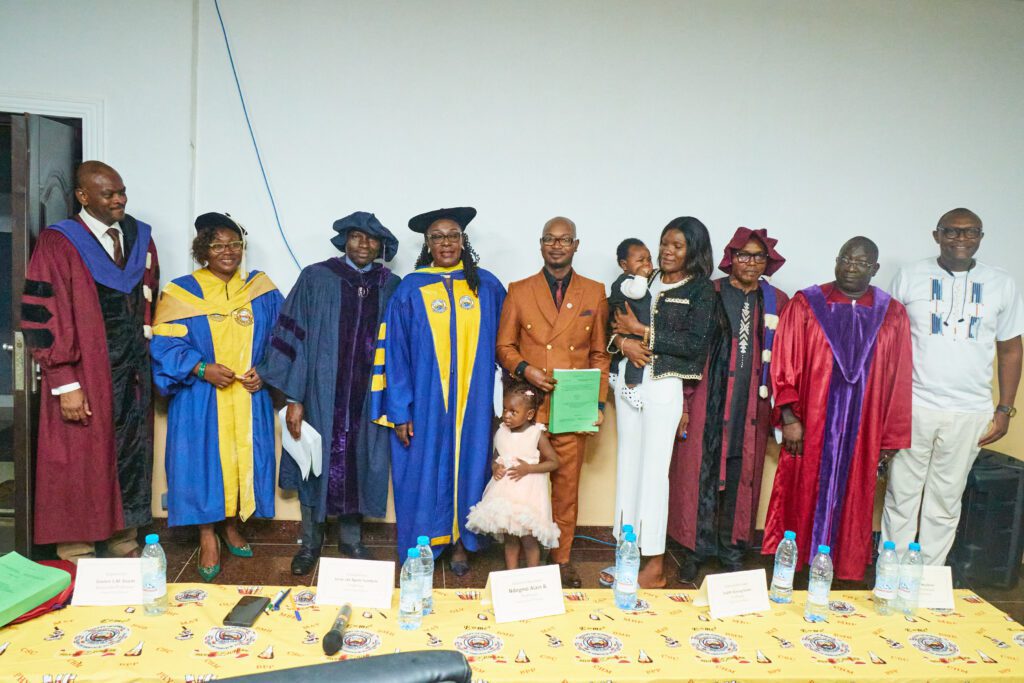
“We’re not just producing graduates. We’re creating a culture of applied science, critical thinking, and health innovation,” he explained.
He is also a seasoned lecturer in both public and private universities, guiding Bachelor’s, Master’s, and PhD students while simultaneously mentoring them in practical research fields like epidemiology, ergonomics, and physiological health.
From Data to Action
Dr. Meh’s research isn’t gathering dust on a university shelf. Already, it has yielded three peer-reviewed publications and one international book chapter, and was recently presented at scientific conferences in the UK and Nigeria. More importantly, he is taking his findings back to the hospitals that made the research possible.
“We are planning seminars and workshops for hospital staff on ergonomics, posture correction, and stress management,” he said. “We’ve already written to these institutions, and we intend to educate not just doctors and nurses, but administrators too. Stress from bad management also contributes to these disorders.”
He called on the Ministry of Public Health to treat the health of healthcare workers as a national priority. “If our doctors and nurses are sick, who takes care of the nation?” he asked. “A country cannot afford to ignore the health of those who care for others.”
He further cited a 2016 study showing that some healthcare workers spend up to 500,000 FCFA per month treating musculoskeletal conditions—an unsustainable figure given current public sector wages.
The Road Ahead
Not one to rest on laurels, Dr. Meh is already looking toward his next research venture—this time focusing on university lecturers and other professional groups like bankers, accountants, and transport workers. “We want to expand this work across Cameroon. The goal is prevention, not just diagnosis,” he said.
He also plans to empower his students to take on future studies in occupational health, stressing the importance of lab-based diagnosis alongside clinical assessment. “You don’t just ask someone if they feel neck pain and prescribe Panadol. You run tests, collect data, and confirm it with biomarkers.”
A National Asset
With his new doctorate, Dr. Meh Basil Kum has not only made academic history, but also set a new standard for socially impactful research in Cameroon. More than a scientist, he is an advocate, an educator, and an institution builder.
As the country grapples with the complex task of improving its healthcare system, voices like his offer a blend of scientific insight and practical reform. In an era where knowledge must translate into action, Dr. Meh is already walking the talk.
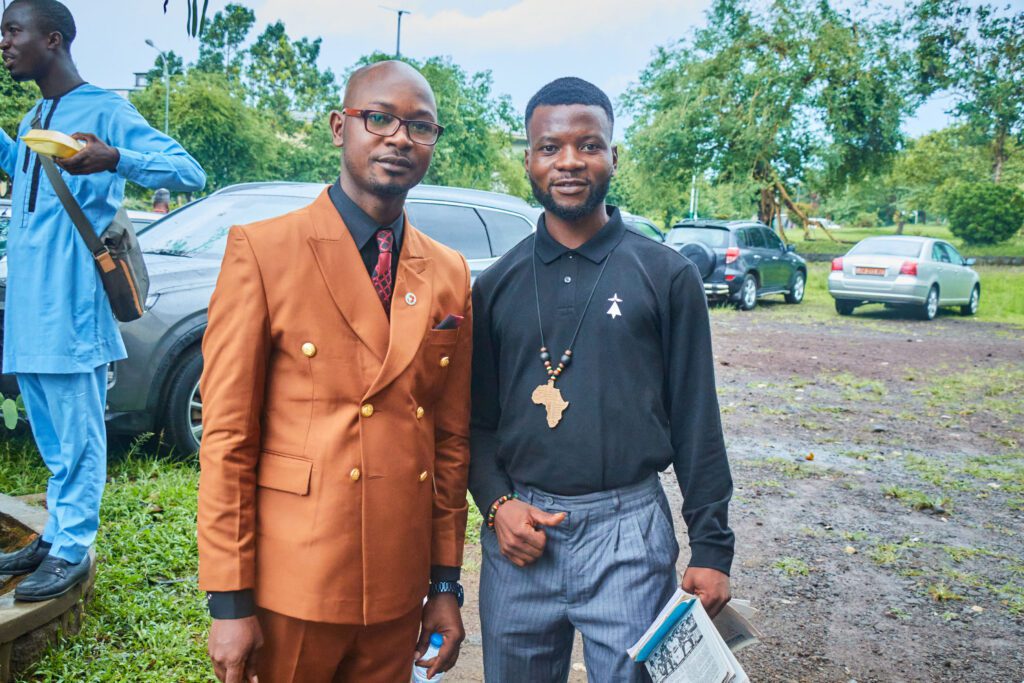
Cameroon needs more Dr. Mehs—not just to ask for jobs, but to create them, and in the process, build a healthier, more informed nation.
By Betrand Ntumnyuy

